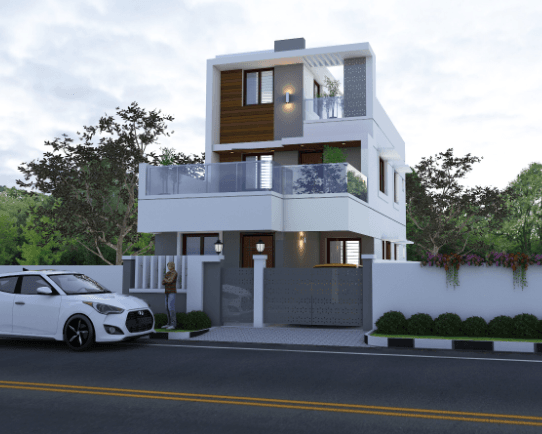
Many people consider smart homes as the next big thing. As these two stand at the forefront of two distinct generations, their connection will only increase as the younger generation will seek new technology as a means to interact with their homes. More and more people are looking at integrating smart homes into their new or old builds. This article will discuss what smart homes are, how they are different from traditional homes, what are the pros and cons of a smart home as well as things one should keep in mind before jump shipping towards them.
What Are Smart Homes?
Smart homes quite literally are homes which are smart. This is because it allows homeowners to control various systems within their house without even having to be in the same room, for example: climate control systems, security systems and so on. Automation is a key element in SMart home built as it aims to ease the load of house chores on its residents. Here are a few popular ones found in smart homes:
- Popular voice assitants such as Google Home and Alexa based on Amazon that can carry out multiple commands with simple voice commands.
- Smart Thermostats which automatically change temperature according to preset levels.
- Smart lights which allows you to turn on and off lights with a remote or set them on a timer.
- Smart surveillance cameras that update homeowners in the event of some rare movement in the known vicinity.
- Smart fridges along with other appliances that are capable of keeping an eye on the stocks in them.
What Makes a Smart Home Different than a Regular Home?
The life of a homeowner who has a smart home can be said to be awe inspiring and it is mostly due to the technology that is implemented in these homes. Smart homes can control almost every amenity automatically while a traditional house must rely on a manual approach, this means that not only are smart homes more convenient but they are also more efficient. To give an example, traditional houses would require a person to go up to the TV and switch the channels manually, whereas smart homes allow you to control the TV from across the room.
To add on, smart homes would generally consume lesser energy and this is facilitated by the presence of programable thermostats along with other things that lead to lesser energy consumption while cutting down on the electricity bill.
The Pros of Residing in a Smart Home
Smart homes are convenient on multiple levels and that is why they appeal to a large majority of homeowners, the following points explain how smart homes are advantageous:
- Convenience: Majority of the time and effort is saved considering every system in the home can be controlled within the comfort of your palms.
- Energy Efficiency: Automatically modulate temperature and lighting according to conditions and eliminate energy usage that is not needed.
- Better Security: With the help of smart security systems, a person is always aware of what is going on in their home allowing them to be alerted in times of danger.
- Always Comfortable: The smart home is able to adjust its necessary systems such as, entertainment systems, the temperature of the room and even the lighting to suit the preferences of the homeowner.
The Reason For the Increase in Popularity of Smart Homes?
While there are many factors that encourage smart homes to grow in popularity, the most notable ones are the availability and accessibility of smart technologies. The devices are becoming so widespread that the average homeowner is eager to have them installed into their property as they save energy, time, and require less manual control.
Moreover, smart homes deliver some major savings in the long run which makes them a viable option for a huge number of people.
Is Investing in A Smart Home Worth It for You?
There are many potential benefits that are associated with owning a smart home but it is also extremely important to analyze if they fit your requirements and your pocket. Here are a few points that you should keep in mind before becoming a smart homeowner:
- Financial Plan: Due to the expenses of installation and technology, smart homes can be quite costly to set up, however, they will prove to be more economical in the long run when it comes to the energy bills.
- Habits and Practices: If you like easy and automated processes, a smart home is perfect for you. On the contrary, if you enjoy doing things manually, a traditional house would suit you best.
- Demography and Geographical Factors: Smart homes have been on the rise in metropolitan areas as well as new constructions, therefore, smart homes may be unavailable depending on where you live.
- Maintenance: It is good to remember that smart houses may require greater care and updates than conventional houses because of their technological components.
Conclusion
The concept of smart homes is gaining traction and with it a number of advantages such as greater comfort, ease, security and energy efficiency with increased use of technology. Nevertheless, it is advisable to assess your finances, way of life and preferences before you make the investment. Smart homes are an option for individuals interested in learning about how modern homes will look like.
Do you wish to invest in a property that resonates with your needs? At Dream Location, we assist you in finding the best property in New Delhi, NCR and North India. Whether you are looking for high priced luxury properties or reasonable priced ones, our specialists will assist you at every stage of buying the dream home.
For more information about Dream Location and to search your dream property, please visit Dream Location on Google Map. Contact us today to know more about the best real estate deals in Delhi and North India; we will connect you to the right property investment.
